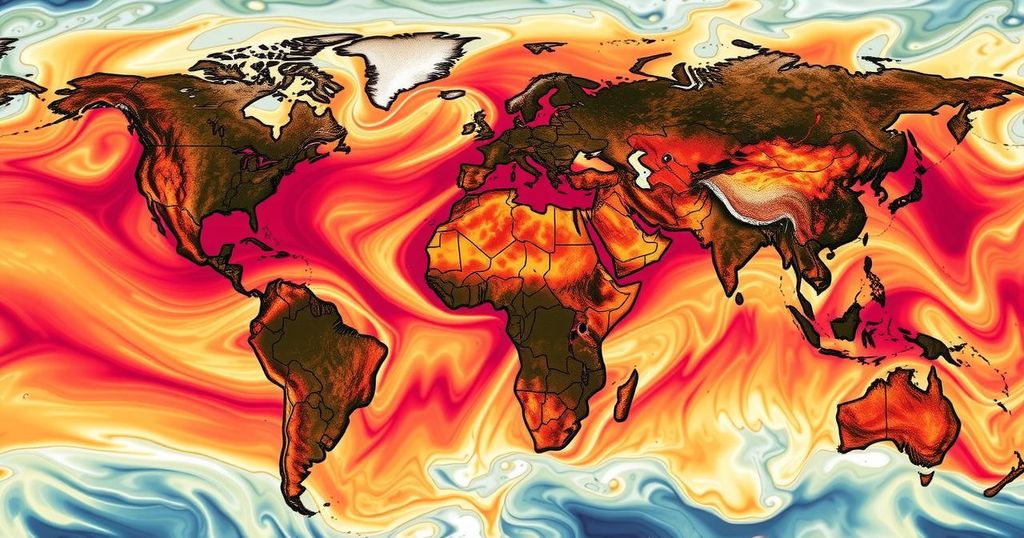Climate Change Causes Surge in Extreme Weather Events in 2024
The year 2024 showcased alarming weather extremes fueled by climate change, resulting in 41 additional days of severe heat globally. The adverse effects include intensified natural disasters, particularly affecting small island nations and developing states, with climate change playing a larger role than El Niño in many events, such as significant droughts and floods. The findings underscore an urgent need for emissions reduction and a shift away from fossil fuels.
The year 2024 has witnessed alarming levels of extreme weather events, propelled by unprecedented global temperatures. While initial reports of the year echoed a winter chill, the realities unfolding reveal severe heatwaves, droughts, wildfires, storms, and floods that have led to significant loss of life and widespread displacement of populations. This stark manifestation of climate change indicates an alarming increase of 41 days of extreme heat globally, chiefly affecting small island nations and vulnerable developing states, as detailed in a recent analysis by Climate Central, a not-for-profit organization dedicated to climate research.
The impacts of this extraordinary heat were particularly concerning regarding public health, with many consequences remaining inadequately reported. In this context, it is evident that climate change has exerted a more pronounced effect than even the El Niño phenomenon in exacerbating disasters such as the Amazon rainforest’s severe drought. The Amazon, a crucial global carbon sink, has experienced considerable biodiversity loss owing to these climatic extremes, further emphasizing the critical nature of the current environmental crisis.
Global flooding incidents have compounded this tragedy; from Sudan to Brazil and Dubai to the Southern Appalachians, floods have inflicted significant damage, with 15 out of 16 significant flood events examined being attributed to climate change-induced rainfall patterns. Inadequate evacuation strategies and insufficient flood defenses have heightened the human toll amidst these natural disasters. Moreover, oceans have absorbed much of the excess heat, which has intensified storms such as Hurricane Helene and Typhoon Gaemi. Studies have indicated that storms now exhibit stronger winds and increased rainfall, with Atlantic hurricanes from 2019 to 2023 exhibiting a one-category increase in intensity directly attributable to human activities.
Climate Central emphasizes that the growing frequency and severity of these disasters underscore the urgent need for concerted action in emissions reduction and a comprehensive transition away from fossil fuels, highlighting a critical juncture in the global response to climate change.
The discussion surrounding climate change has increasingly highlighted the significant impact of human activities on global temperatures and weather patterns. The recent analysis by Climate Central sheds light on the profound effects of climate change, particularly in the context of extreme weather events that have plagued numerous regions across the globe. As the scientific community underscores, the increase in atmospheric temperatures due to greenhouse gas emissions has led to more intense and frequent climate-related disasters, affecting biodiversity, human health, and overall social stability.
In summary, the analysis from Climate Central illustrates the profound effects of climate change, leading to an unprecedented increase in extreme heat days and severe weather events in 2024. The ramifications of these events are most acutely felt by vulnerable populations in small island nations and developing countries, highlighting a pressing requirement for strategic climate action. Immediate measures to reduce emissions and transition away from fossil fuels are deemed critical to mitigate the ongoing crisis and secure a sustainable future.
Original Source: www.energylivenews.com




Post Comment